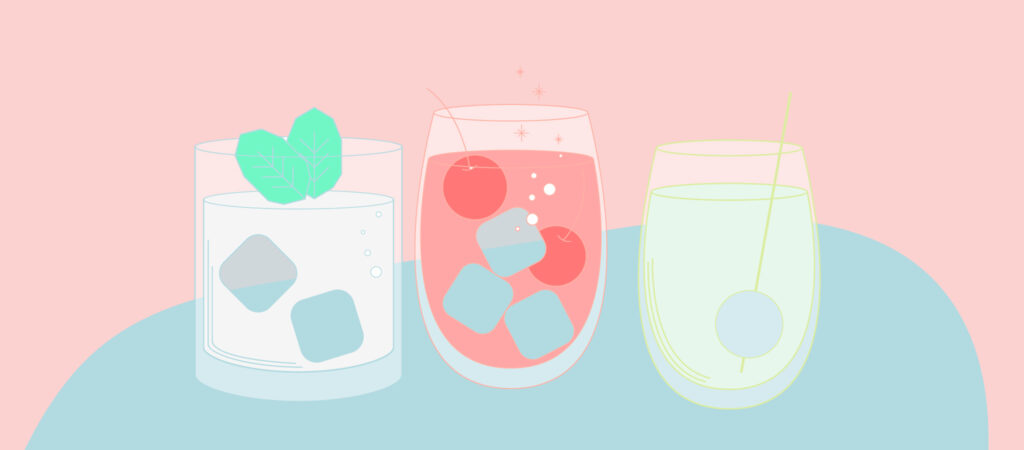Alcohol and Rosacea: What You Need to Know

Medically reviewed by Dr. Nancy Shannon, MD, PhD on August 9, 2021
If you think of a heavy drinker, you may picture somebody with a ruddy, flushed face. Rosacea is characterized by flushing and facial redness, so does alcohol cause rosacea? Not exactly — the relationship between alcohol and rosacea is complicated, and it may not be the same for everyone. Moreover, just because someone has rosacea does not mean he/she is a heavy drinker. Here’s what you need to know:
Does Alcohol Cause Rosacea to Develop?
Though alcohol consumption is commonly linked with rosacea, it’s unclear if drinking alcohol plays a role in rosacea developing in the first place or progressing. Many people become flushed when drinking alcohol, similar to the effects of a rosacea flare-up, but that doesn’t necessarily mean they have rosacea.
A 2017 study found that consumption of white wine or liquor was correlated with an increased risk of developing rosacea, but it’s not entirely clear why. Moreover, consumption of other alcohols, such as beer and red wine, did not seem to impact the likelihood of developing rosacea in the first place. The general consensus among experts has long been that alcohol does not itself cause rosacea, but it may be a risk factor.
Nurx offers prescription treatment for acne, anti aging, melasma, rosacea, and eyelash growth.
When left untreated, severe rosacea can sometimes result in a thickening and reddening of the skin, particularly around the nose. This phenomenon, known as rhinophyma, was for years believed to be the result of heavy drinking — thus earning it the moniker “drinker’s nose” or “alcoholic nose.” Rhinophyma is not due to alcoholism and patients can develop this skin change whether or not they drink alcohol.
Alcohol As A Trigger
For people who already have rosacea drinking alcohol can trigger a rosacea flare-up. Though rosacea is a chronic condition that can last for decades, its symptoms are usually apparent only during flare-ups, during which facial skin can become red, sensitive, and develop pimple-like lesions. Alcohol dilates the blood vessels in the skin, reddening the face and causing it to become flushed.
Are certain drinks more or less triggering than others? A survey conducted by the National Rosacea Society found that red wine acts as a trigger for 76% of people with rosacea, making it the most common alcoholic trigger. In addition to making the face flushed, red wine also contains high levels of histamines, organic compounds that can have inflammatory properties which in turn make flare-ups more likely. After red wine, white wine affects 56% of rosacea patients, followed by beer at 41%, then champagne and vodka at 33% each.
Drinking Alcohol With Rosacea
Don’t worry: having rosacea doesn’t mean that you need to give up drinking entirely, but people with rosacea may need to drink cautiously. Though any amount of consumption will bring with it some risks of a flare-up, there are still steps you can take to prevent them, such as:
- Choose the right drink.
The numbers found in the aforementioned survey show that while alcohol is a common trigger across the board, different drinks affect people differently. While the survey indicates that red and white wine are the most common triggers by far, you might need to do a bit of observation to identify your triggers. If beer consistently causes flare-ups for you, you may need to cut your intake of it.
- Stay hydrated.
Hydrated skin is more resilient skin. If you’re going to drink alcohol, you should be sure that your skin is prepared to deal with whatever irritation may be headed its way. Drink water alongside your alcoholic beverage — not only will this help dampen some of the effects of the latter, it will also ensure that your skin always has the water it needs to draw upon in order to stay healthy.
- Drink slowly.
The more quickly you drink, the more likely you are to become intoxicated and experience the flushing that can accompany alcohol consumption. Drink slowly and in moderation in order to avoid irritating your skin as much as possible.
- Don’t mix triggers.
If you’re going to drink alcohol no matter what, you should at least work to avoid exposing your body to even more triggers. Avoid unmitigated sun exposure, hot weather, spicy foods, and other common triggers while drinking. The more you expose yourself to, the more likely it is that a flare-up will occur.
Navigating the ins and outs of living with rosacea can be tough, but we’re here to help you do just that. Get in touch with a member of our medical team today to learn more about what treatments options are available to you.





